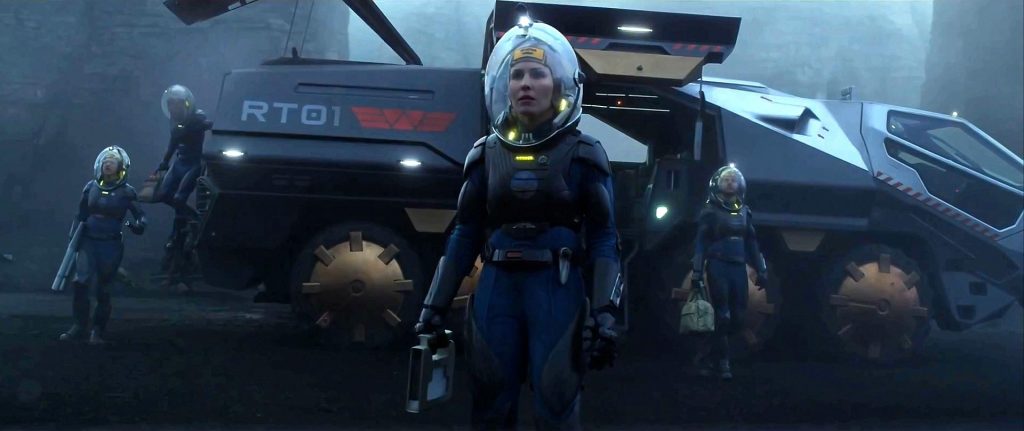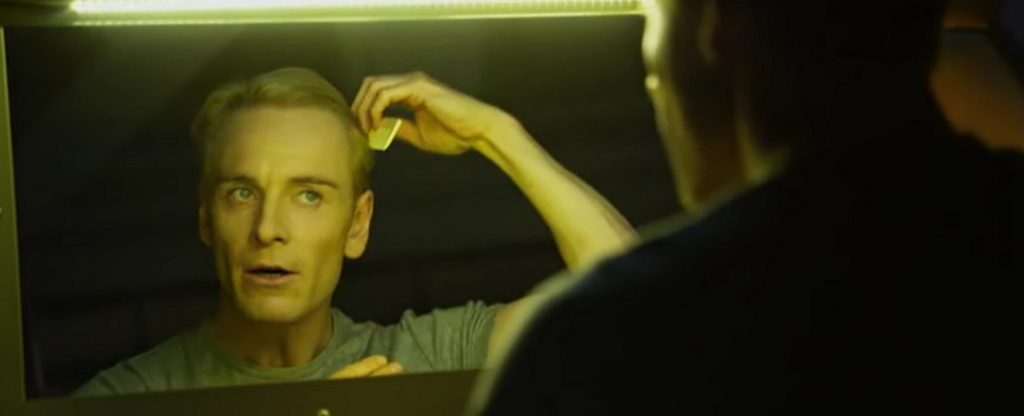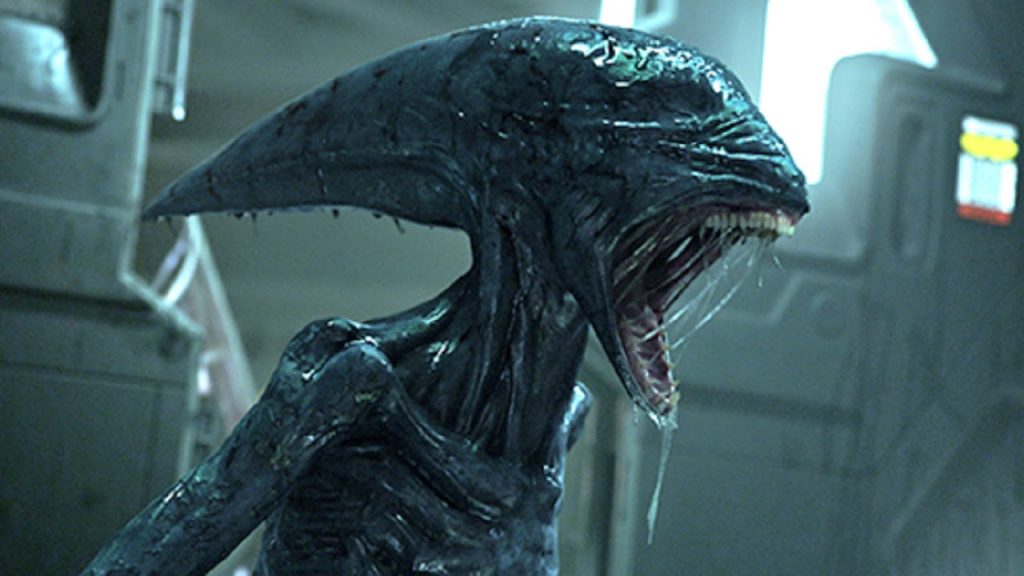Who are we? Why are we here? What is our purpose?
These are questions that has been asked, in primitive thought and later in language and religion, since humanity came to be. The answers would give us meaning in our day-to-day lives, and a direction toward our goals as a species. But what if the answers to those questions were not as awe-inspiring as we had hoped? What if we aren’t as important in the grand scheme of the universe as we had hoped? These are the new questions that Ridley Scott toys with in the prequel to the Alien franchise, Prometheus.

Prometheus is a 2012 science fiction thriller directed by Ridley Scott. The film is set in the late 21st century, and follows the journey of a group of scientists, businessmen, military personnel, and an android as they attempt to meet their makers and answer these ancient questions. The journey takes them to a distant world where large, humanoid creatures once lived. The answers, however, do not live up to expectations, as they learn that their makers, The Engineers, had developed a biological weapon, and humanity may be merely the incubator for its release.
As a stand-alone film, Prometheus has all the standard Ridley Scott elements that we have come to love: sprawling, futuristic landscapes like a Japanese watercolor where the characters seem to be a small part of the scene rather than overtaking it; a developing story that blends a heavy-hitting theme with the action. Add that to a fantastic portrayal by Michael Fassbender as David, the child-like android who seems evil, but is really a catalyst to his own maker, and a design straight from the heart of H.R. Giger, and Prometheus becomes the sort of film that makes you need to see how it ends.

But the film is not without its flaws. There are times that the film seems to go in a cliche direction to keep it moving, such as Elizabeth Shaw’s statement that she can’t have children leading right into a love scene with a bio-carrying Charlie Holloway, which leads to Shaw being pregnant with a squid-monster. Or Vickers (played by Charlize Theron) showing us that Peter Weyland is her father, in case we didn’t know that already. Or the sole surviving Engineer’s unexpected anger towards the humans when being awakened, to the point of killing anything it could get its hands on. Plot points like this either seemed hurried in a film that probably didn’t need them, or left us with questions that should have been answered, even if a sequel to the film was planned.

Despite its problems, Prometheus is a breath a fresh air to the Alien franchise after it had gone towards the cliche of “let’s make different types of aliens for a sequel,” which is almost along the lines of putting horror icons in space or into a holiday special. The film captured my imagination once again, and makes me hopeful for what is to come.

[…] android, David, Alien: Covenant is set to continue the prequel storyline that began with the film, Prometheus. Will we learn more about The engineers? Is humanity a biological weapon itself, or merely the […]
[…] Covenant doubles as a sequel and prequel at the same time. It is a sequel to Ridley Scott’s Prometheus, but a prequel to the original Alien film. The crew of the ship Covenant stumble upon a planet […]